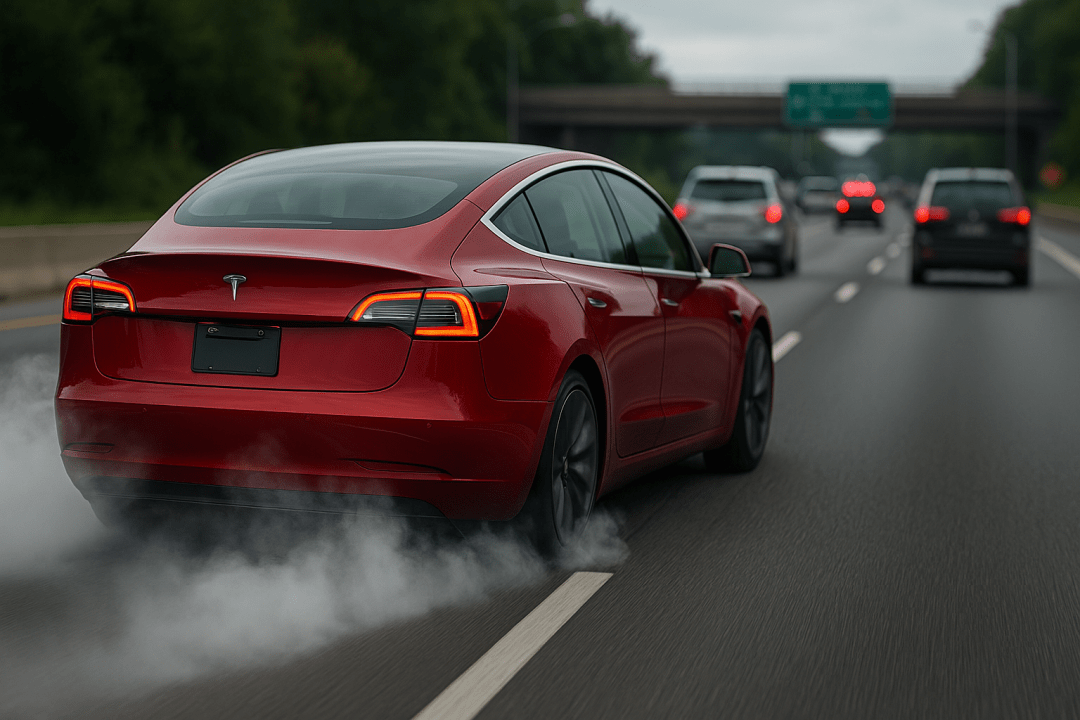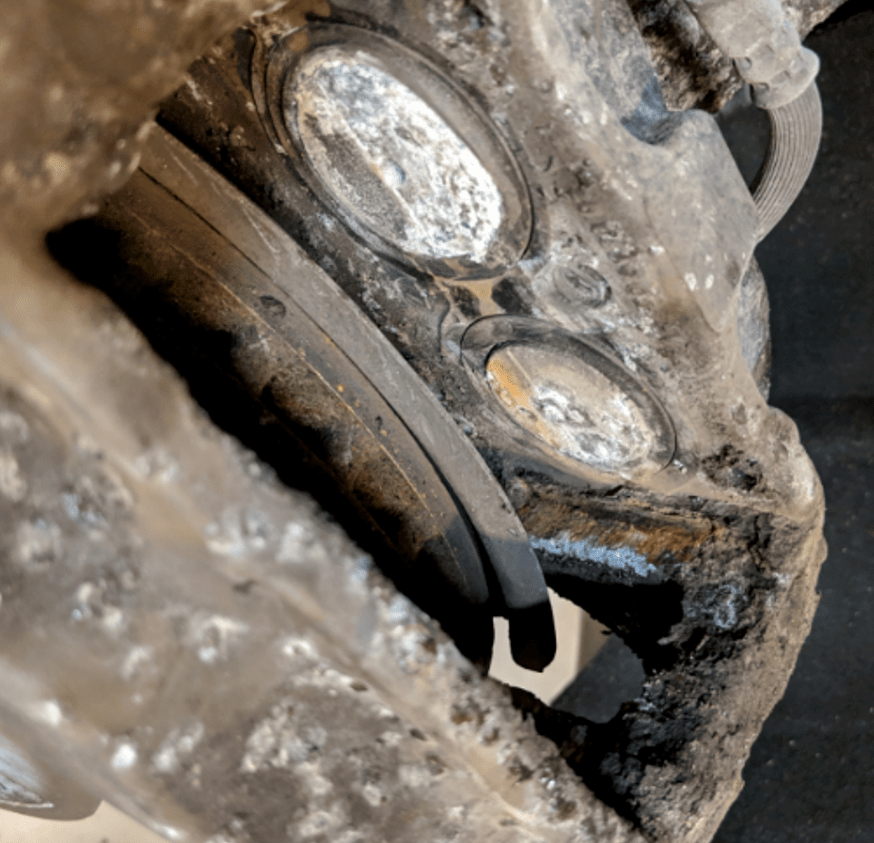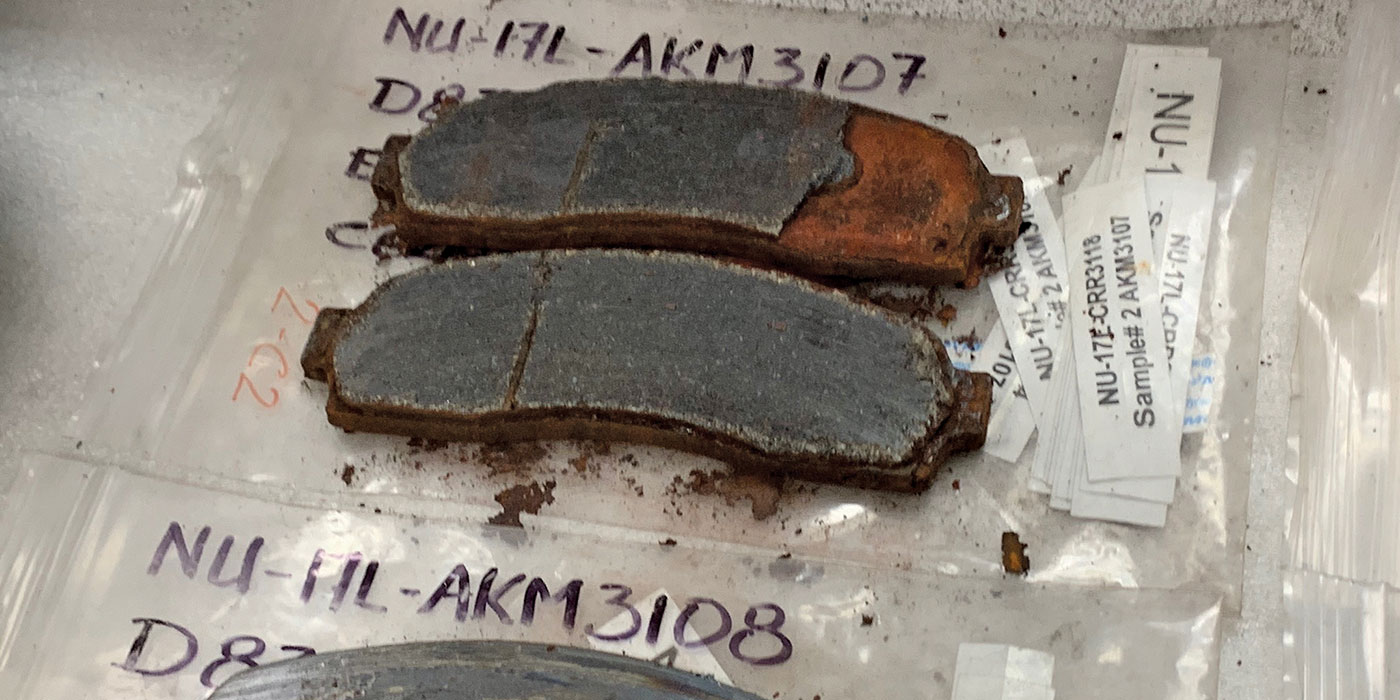Don’t Skip EV Brake Maintenance: How to Keep Your Electric Vehicle Safe and Reliable

Why EV Brakes Last Longer, But Still Require Regular Service
One of the great advantages of electric vehicles (EVs) is regenerative braking. This system uses the electric motor to slow the vehicle and recover energy, which means the traditional hydraulic brakes are used far less often than in gas-powered vehicles. As a result, EV brake pads and rotors can last significantly longer than those on conventional internal combustion engine (ICE) cars.
But here’s the truth: longer life does not mean zero maintenance. At EV LAB Victoria, we’ve seen first-hand that skipping regular EV brake service can lead to unsafe braking systems, costly component failures, and even accidents.
Why EV Brakes Still Need Attention
Less Frequent Use Creates Hidden Risks
Because regenerative braking does most of the slowing, the hydraulic braking system on an EV often sits idle. Over time, this lack of use allows dirt and debris to build up, lubricants to dry out, and rust or corrosion to form on pads, calipers, and rotors. Unlike traditional brakes, EV brakes don’t regularly heat up enough to evaporate moisture, which makes corrosion even more likely.
Example Of Brake Caliper Overdie For Service:

Brake Fluid Deteriorates with Time, Not Kilometres
Brake fluid is hygroscopic, meaning it absorbs moisture through flexible rubber hoses and seals, even in a “sealed” system. This reduces the fluid’s boiling point and can corrode metal components from the inside out.
If your manufacturer doesn’t specify a change interval, experts recommend replacing brake fluid every 18 months to maintain braking safety. Neglecting this service can lead to internal corrosion, expensive repairs, and poor braking performance.
EVs Are High-Performance Vehicles, With Greater Braking Demand
EVs carry heavy battery packs and deliver instant torque, which gives them incredible performance but also means brakes must handle more weight and power. In a hard stop or emergency situation, brakes must perform perfectly to bring that mass to a stop safely. Keeping your EV brake system properly serviced ensures your vehicle remains safe under demanding conditions.
Brake Calipers Seizing Are Common When Brake Maintenance Has Been Skipped
Because the pads on EVs don’t always reach the same temperatures as those on ICE vehicles, they don’t “burn off” moisture as effectively. Over time, this can cause brake pad delamination, caliper seizing, and even total brake failure. We’ve seen components literally come apart during panic stops, a dangerous and avoidable situation. Imagine only one side of your brakes applying pressure during a slick or emergency stop, the results could be disastrous.
What We See at EV LAB Victoria
Our technicians regularly service and inspect electric and hybrid braking systems, and we’ve found that many unsafe conditions come from a simple lack of maintenance. Common issues include:
- Pads and rotors failing prematurely from rust, corrosion, delamination of friction material.
- Calipers seizing due to dried-out lubricants, build up of debris and lack of use.
- Brake components breaking apart because they can’t apply even pressure.
- Moisture-saturated brake fluid causing internal corrosion and poor braking response.
For Tesla, Hyundai, Nissan Leaf, Chevrolet Bolt, Ford Lightning, Rivian, and other EVs, replacing seized calipers or corroded brake components can be extremely expensive, far more than the cost of a routine brake service at EV LAB Victoria. And of course, the cost of an accident due to brake failure is far greater than just a monetary value.
Example Of Brake Pads Needing Replacment:

How Regular Brake Service Helps
A professional EV brake service at EV LAB Victoria includes:
- Cleaning calipers, pads, and rotors.
- Lubricating key moving parts to prevent seizing.
- Inspecting and testing the entire braking system.
- Checking and replacing brake fluid as recommended.
This process ensures your brakes are ready to perform when you need them most, whether during a sudden panic stop, a steep descent, or a wet road. Regular service also prevents expensive repairs and keeps your EV safe, reliable, and operating exactly as designed.
Example Of Brake Rotor Rusted From Lack Of Use:

The Bottom Line
EV brakes may last longer, sometimes even the life of the vehicle, but they are not maintenance-free. In fact, they require specialized care to prevent corrosion, seizing, and fluid degradation.
At EV LAB Victoria, our certified technicians specialize in EV brake maintenance and repair for all makes and models, from Tesla and Nissan Leaf to Hyundai Ioniq, Chevrolet Bolt, Ford Lightning, and more.
Annual brake inspections and services by qualified EV technicians give you peace of mind that your vehicle will stop exactly as the manufacturer intended.
Proper maintenance saves money, protects parts, and could save lives.
